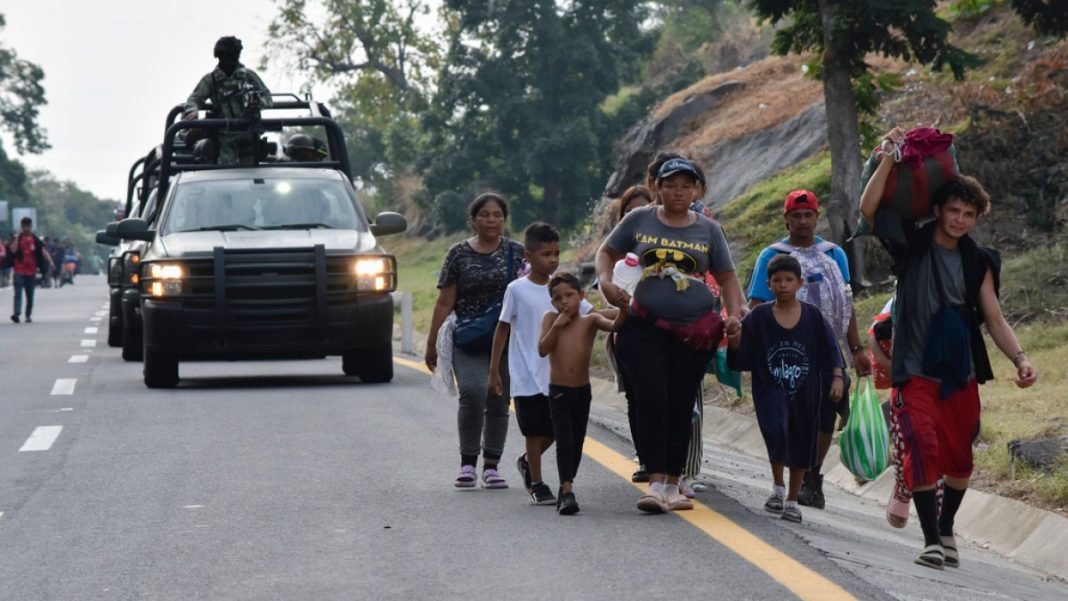Talks between Lopez Obrador and US officials follow temporary shutdown of some rail crossings.
Mexican President Andres Manuel Lopez Obrador says an agreement has been reached with United States officials to keep border crossings between the two countries open after temporary closures during a high number of crossings.
The announcement comes one day after Lopez Obrador, also known as AMLO, met with US Secretary of State Antony Blinken and Homeland Security Secretary Alejandro Mayorkas for “direct” talks about the challenges of increasing migration.
“This agreement has been reached. The rail crossings and the border bridges are already being opened to normalize the situation,” Lopez Obrador said at a press conference. “Every day there is more movement on the border bridges.”
Seeking to project a firm stance on migration, a key issue in the upcoming US presidential election, President Joe Biden’s administration has pressured countries throughout Latin America to step up enforcement.
“The regional challenge of migration requires regional solutions,” Mayorkas said in a social media post on Wednesday, after what he called a “very productive meeting” with Mexican officials.
“And we appreciate Mexico’s commitment to continue its efforts alongside us and with others.”
This month, the US temporarily shuttered a handful of border crossings, including two rail bridges, in an effort to stem rising migrant numbers.
The Biden administration has also taken a number of steps that critics say severely restrict asylum applications, a legal right under both US and international law.
For several decades, the US has poured funds and resources into an enforcement-heavy approach towards immigration. Human rights advocates have criticised the policy for doing little to deter people who are often fleeing violence and poverty while increasing the risks for migrants navigating the myriad dangers of the journey north.
Across the world, rich countries have taken increasingly harsh steps to crack down on migration from poor countries as anxieties over migration help fuel the rise of far-right politicians and parties in the US and Europe.
Last week, France passed an immigration bill that President Emmanuel Macron touted as a necessary compromise but that rights groups derided as “the most regressive bill of the past 40 years for the rights and living conditions of foreigners”.
Marine Le Pen, the leader of the far-right National Rally, called the bill an “ideological victory”.







